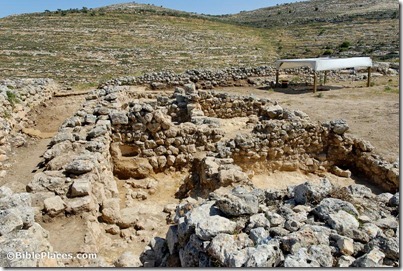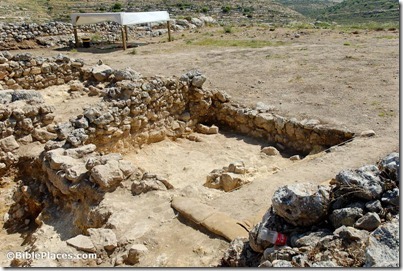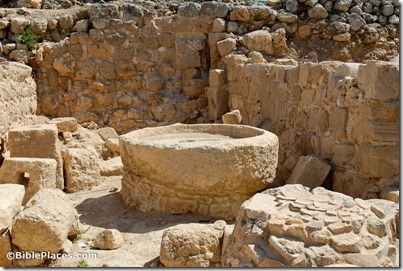A news report in February stated that Tel Shiloh was to receive $4 million in government and private funding for developing the antiquities site. Recent visits to the site reveal that the money is being spent on several excavation areas, the improvement of paths, and the construction of a new observation platform.
I am especially interested in excavations on the northern side of the site, in the relatively flat area where scholars have speculated that the tabernacle may have once rested.
View from summit of potential area of tabernacle
Excavations on northern side of Shiloh
Excavation square on northern side of Shiloh
Cuttings in bedrock on northern side of Shiloh
Excavations continue on the western side of the tell where they have discovered a Byzantine olive press.
Excavations on western side
Olive press from Byzantine period
On top of the summit, work has proceeded since last year on a new viewing deck.
Viewing platform under construction, April 2012







3 thoughts on “Excavations at Shiloh”
I hope that with the government money, they will remove the overpriced admission fee to enter the site.
I have mixed emotions about this. It is an amazing and important site. I visited there in February. I plan to take my next tour group there.
However…it is so clearly and fully inside Palestinian Authority boundaries that I have a hard time justifying any Israeli settlement there.
Hi Al,
What "Palestinian Authority boundaries" are you talking about? This site is in Area C, not Area A.
Perhaps you mean the boundaries illegally annexed by Jordan following the 1948 war and held until 1967. Does this give the Jordanians greater moral right to the site than Israel?
Or maybe you're talking about the ancient Israeli settlement there. Is it hard to justify that Samuel and Eli lived there?
Do you think that a factor in deciding who controls ancient sites should be who protects and preserves them?
Why should Arabs be allowed to live within a Jewish state but Jews not allowed to live in an Arab state?